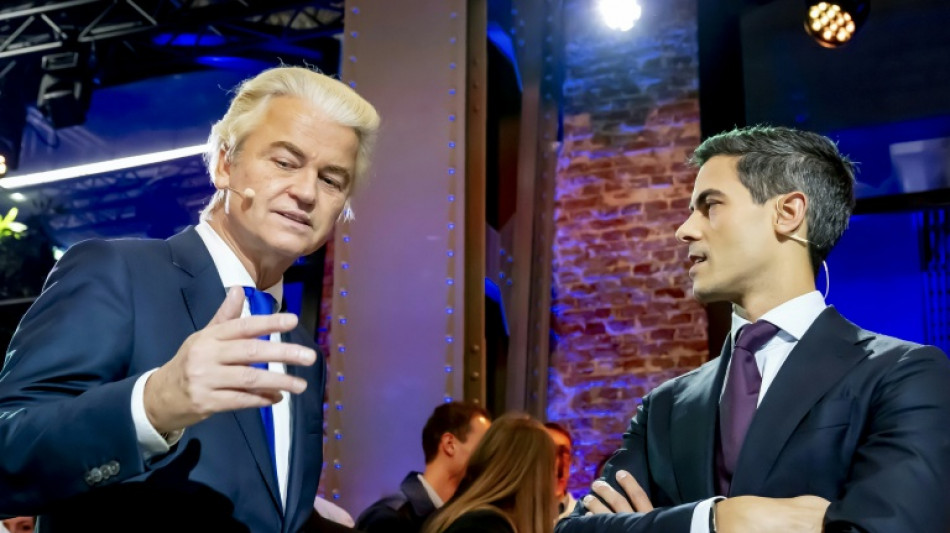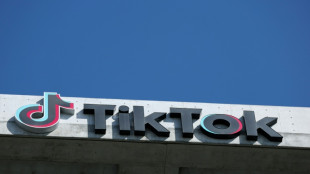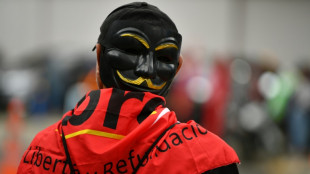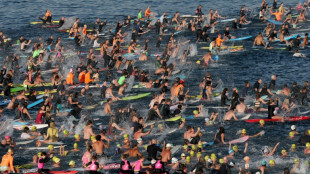

Dutch election a photo finish between far-right, centrists
The Dutch election climaxed in an unprecedented cliffhanger Thursday, with only a few thousand votes separating the far-right party of firebrand Geert Wilders and a pro-European centrist party.
With 99.7 percent of the vote tallied, the anti-Islam PVV Freedom Party run by Wilders was fractionally ahead of the D66 led by the energetic Rob Jetten, 38.
Every major party has ruled out working with Wilders, meaning Jetten is on track to become the country's youngest and first openly gay prime minister -- even if he comes second.
The gap was so close that overseas postal votes might decide the election, so a final result could yet take days.
With far-right parties surging in France, Britain, and Germany, the vote was closely watched as a bellwether of populist strength in Europe.
Wilders was projected to carry 26 seats in the 150-seat parliament, which would be a loss of 11 compared to his stunning election win in 2023.
But there was a doubling of support for the extreme-right Forum for Democracy (FvD) from three to seven seats.
The hard-right JA21 also enjoyed a strong gain from one seat to potentially nine.
"The radical right as a whole hasn't really lost, due to the gains of JA21 and FvD," Sarah de Lange, Professor of Dutch Politics at Leiden University, told AFP.
When the final result is eventually confirmed, a long process of trying to forge a coalition will begin, with 76 parliamentary seats required for a majority.
The most likely possibility appears to be a "grand coalition" with the D66 (26 seats), the liberal VVD (22), the centre-right CDA (18), and the left-wing Green/Labour group (20).
"It will certainly take time for the Netherlands to reach stability and a new coalition," De Lange told AFP.
"The parties are ideologically very, very diverse, which will make compromising very challenging."
On the streets of Amsterdam, Sanne-Louisa de Bruin told AFP she felt "actually hopeful and that's nice after two years of feeling quite sceptical and not going anywhere."
"I'm relieved with this result. I think we now have a basis for a coalition that is actually able to fix major issues in the Netherlands," added the 37-year-old, who said she works in energy transition.
"I hope the rest of Europe follows."
- 'We've done it' -
When the exit poll was released, D66 supporters exploded with joy at their election party in Leiden, waving Dutch and European flags.
"We've done it," said a jubilant Jetten.
"This is an historic election result because we've shown not only to the Netherlands but also to the world that it is possible to beat populist and extreme-right movements," Jetten told reporters.
Wilders, sometimes known as the "Dutch Trump", had collapsed the previous government, complaining progress was too slow to achieve "the strictest asylum policy ever".
"The voter has spoken. We had hoped for a different outcome but we stuck to our guns," said the anti-immigration Wilders on social media.
Dutch voters had a bewildering range of 27 parties to choose from, meaning they each had to grapple with a huge A3 sheet of paper listing the candidates.
The main issues were immigration and a housing crisis that especially affects young people in the densely populated country.
Jetten shot up the polls in the final days of the campaign thanks to strong media performances and an optimistic message.
"I want to bring the Netherlands back to the heart of Europe because without European cooperation, we are nowhere," he told AFP after casting his vote in The Hague.
As a young man, Jetten represented The Netherlands as an athlete and ran as a pace-maker for multiple Olympic Champion Sifan Hassan, so he should be used to a close race.
Frans Timmermans, an experienced former European Commission vice-president, threw in the towel after a disappointing result for his Green/Labour bloc.
"With pain in my heart, I step down as your party leader," the 64-year-old told supporters.
Violence and disinformation marred the campaign.
Until a new government is formed, outgoing Prime Minister Dick Schoof will run the country -- reluctantly. "I wouldn't wish it on you," he told one MP in parliament.
U.Wikstrom--StDgbl





